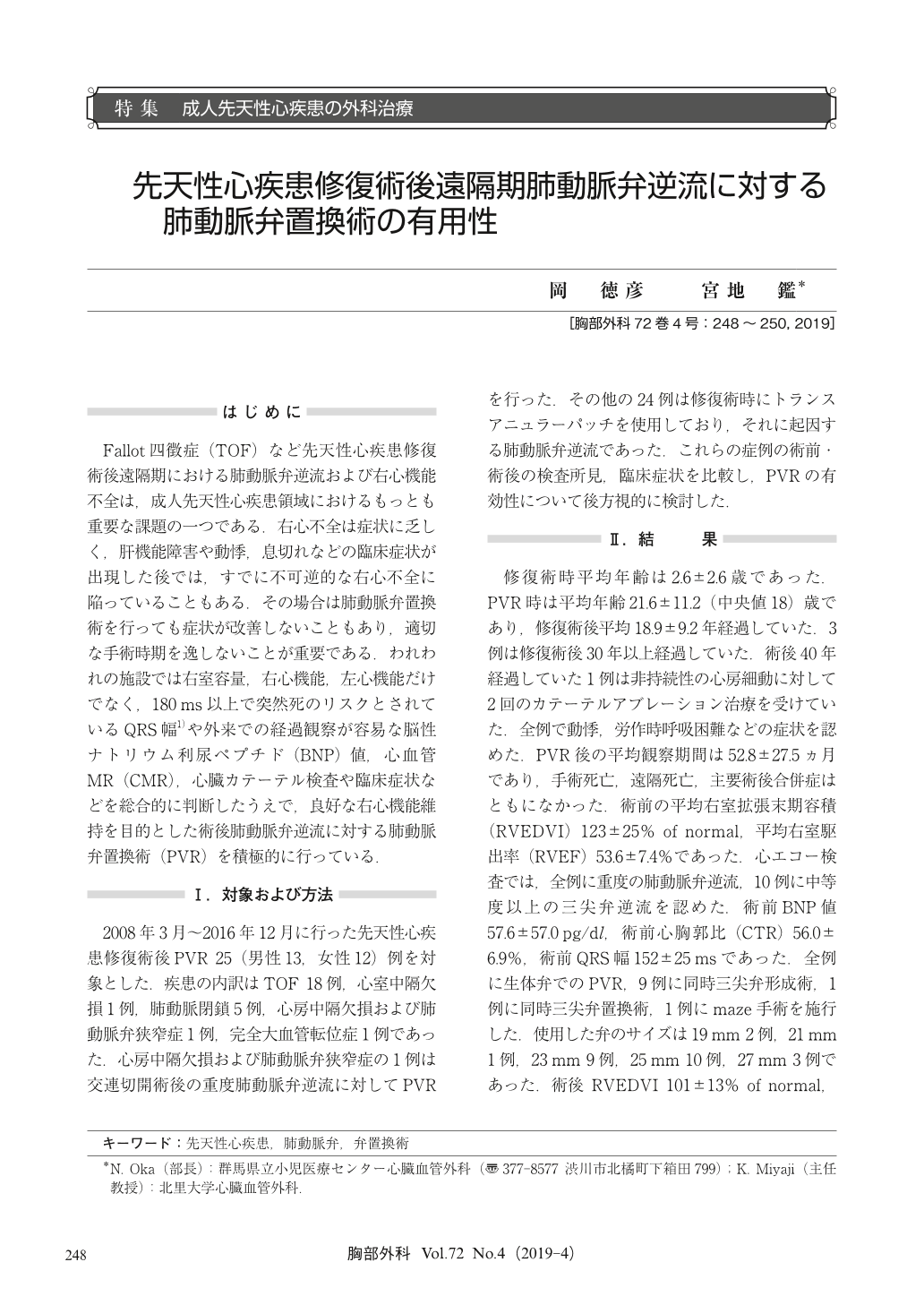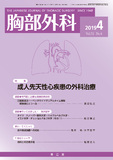Japanese
English
- 有料閲覧
- Abstract 文献概要
- 1ページ目 Look Inside
- 参考文献 Reference
Fallot四徴症(TOF)など先天性心疾患修復術後遠隔期における肺動脈弁逆流および右心機能不全は,成人先天性心疾患領域におけるもっとも重要な課題の一つである.右心不全は症状に乏しく,肝機能障害や動悸,息切れなどの臨床症状が出現した後では,すでに不可逆的な右心不全に陥っていることもある.その場合は肺動脈弁置換術を行っても症状が改善しないこともあり,適切な手術時期を逸しないことが重要である.われわれの施設では右室容量,右心機能,左心機能だけでなく,180 ms以上で突然死のリスクとされているQRS幅1)や外来での経過観察が容易な脳性ナトリウム利尿ペプチド(BNP)値,心血管MR(CMR),心臓カテーテル検査や臨床症状などを総合的に判断したうえで,良好な右心機能維持を目的とした術後肺動脈弁逆流に対する肺動脈弁置換術(PVR)を積極的に行っている.
Pulmonary regurgitation (PR) and right ventricular dysfunction are the major complications in a long-term period after the repair of congenital heart diseases including tetralogy of Fallot (TOF). The purpose of this study is to investigate the effectiveness of pulmonary valve replacement (PVR) after the congenital heart repair. Twenty-five patients undergoing PVR for PR with clinical symptoms in a long-term period between March 2008 and December 2016 were retrospectively reviewed. The average age at the TOF repair was 2.6±2.6 years. The average age at the PVR was 21.6±11.2 years. The mean follow-up after the PVR was 52.8±27.5 months. There was neither hospital death nor late death. All the patients underwent PVR with a bio-prosthetic valve. Nine patients had concomitant tricuspid valve repair. PVR significantly reduced right ventricular end-diastolic volume (RVEDVI) [123±25 vs 101±13% of normal, p=0.002], cardio-thoracic ratio (CTR) [56.0±6.9 vs 52.6±13.0%, p=0.03], and brain natriuretic peptide (BNP) [57.6±57.0 vs 38.7±31.3 pg/dl, p=0.03]. The relatively early PVR significantly improved RVEDVI, CTR and cardiac function.

© Nankodo Co., Ltd., 2019


